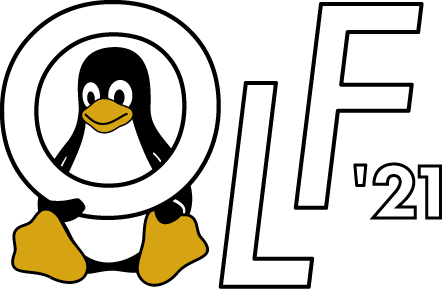QIR Alliance is part of the Linux Foundation’s Joint Development Foundation work on open standards
SAN FRANCISCO, November 30, 2021 – The Linux Foundation, the nonprofit organization enabling mass innovation through open source, today announced the new QIR Alliance, a joint effort to establish an intermediate representation with the goal to facilitate interoperability within the quantum ecosystem and provide a representation suitable for current and future heterogenous quantum processors. Founding members include Honeywell, Microsoft, Oak Ridge National Laboratory, Quantum Circuits Inc. and Rigetti Computing.
QIR, or Quantum Intermediate Representation, is based on the popular open source LLVM compiler toolchain. QIR specifies a set of rules for representing quantum programs within the LLVM IR. Examples of QIR applications include using the standard LLVM infrastructure to write quantum optimizers that operate on QIR and target it to specific hardware backends or linking it with classical high performance libraries for quantum simulation.
“We expect there to be exciting advances in how classical and quantum computations can interact at the hardware level. The QIR Alliance will provide a single representation that can be used for both today’s restricted capabilities and the more powerful systems of the future,” said Bettina Heim, principal software engineering manager, Microsoft. “This will allow the community to experiment with and develop optimizations and code transformations that work in a variety of use cases.”
Quantum development SDKs and languages appear and evolve at a fast pace, along with new quantum processors with unique and distinct capabilities from each other. To provide interoperability between new languages and new hardware capabilities and reduce development effort from all parties, it is imperative for the ecosystem to develop and share a forward-looking intermediate representation that works with present and future quantum hardware.
“Quantum technology is still quite nascent but the promise grows every day,” said Seth Newberry, general manager of standards at Joint Development Foundation. “The QIR Alliance is poised to enable the open and technical development necessary to realize these promises. We’re very happy to provide a forum for this work.”
For more information, please visit: https://qir-alliance.org
Member Quotes
Honeywell
“The Quantum-Intermediate Representation Alliance, also known as QIRA, is a key piece of the quantum computing ecosystem that enables quantum hardware suppliers and quantum software suppliers to reduce redundant efforts involved in implementing programming languages across quantum computer architectures,” said Alex Chernoguzov, Honeywell Quantum Chief Engineer, Honeywell.
Oak Ridge National Laboratory
“ORNL is thrilled to be a part of the Quantum Intermediate Representation Alliance, which aims to develop a unified LLVM-based intermediate representation for quantum computing. A consistent IR of quantum programs will enable interoperability between quantum applications and hardware devices, making quantum computing more usable to researchers and developers. We look forward to contributing to the QIR specification and the associated compiler toolchain under this partnership,” said Thien Nguyen, Quantum Computer Science Researcher, Oak Ridge National Laboratory.
Quantum Circuits Inc.
At QCI, we are very pleased to be participating in the QIR Alliance. The QIR approach represents a revolutionary advance in the representation of quantum circuits, enabling users to take full advantage of the unique capabilities of quantum computing systems across a variety of different hardware platforms,” said Tom Lubinski, Chief Software Architect of Quantum Circuits Inc.
Rigetti
“Rigetti has pioneered hybrid system architectures that are quickly becoming the predominant approach for cloud-based quantum computing” said David Rivas, SVP Systems & Services at Rigetti Computing. “The QIR Alliance is focusing on precisely the interface between quantum and classical compute, enabling rapid advances in quantum programming language design and execution systems. We’re thrilled to be working closely with this community to design the necessary compiler technology and develop implementations for Rigetti hardware.”
About Joint Development Foundation
Launched in 2015, the Joint Development Foundation (the Joint Development Foundation) is an independent non-profit organization that provides the corporate and legal infrastructure to enable groups to quickly establish and operate standards and source code development collaborations. More information about the Joint Development Foundation is available at http://www.jointdevelopment.org/.
About the Linux Foundation
Founded in 2000, the Linux Foundation is supported by more than 1,000 members and is the world’s leading home for collaboration on open source software, open standards, open data, and open hardware. Linux Foundation’s projects are critical to the world’s infrastructure including Linux, Kubernetes, Node.js, and more. The Linux Foundation’s methodology focuses on leveraging best practices and addressing the needs of contributors, users and solution providers to create sustainable models for open collaboration. For more information, please visit us at linuxfoundation.org.
###
The Linux Foundation has registered trademarks and uses trademarks. For a list of trademarks of The Linux Foundation, please see our trademark usage page: https://www.linuxfoundation.org/trademark-usage. Linux is a registered trademark of Linus Torvalds.
Media Contact
Jennifer Cloer
Story Changes Culture
503-867-2304
jennifer@storychangesculture.com
The post New Quantum Intermediate Representation Alliance Serves as Common Interface for Quantum Computing Development appeared first on Linux Foundation.


